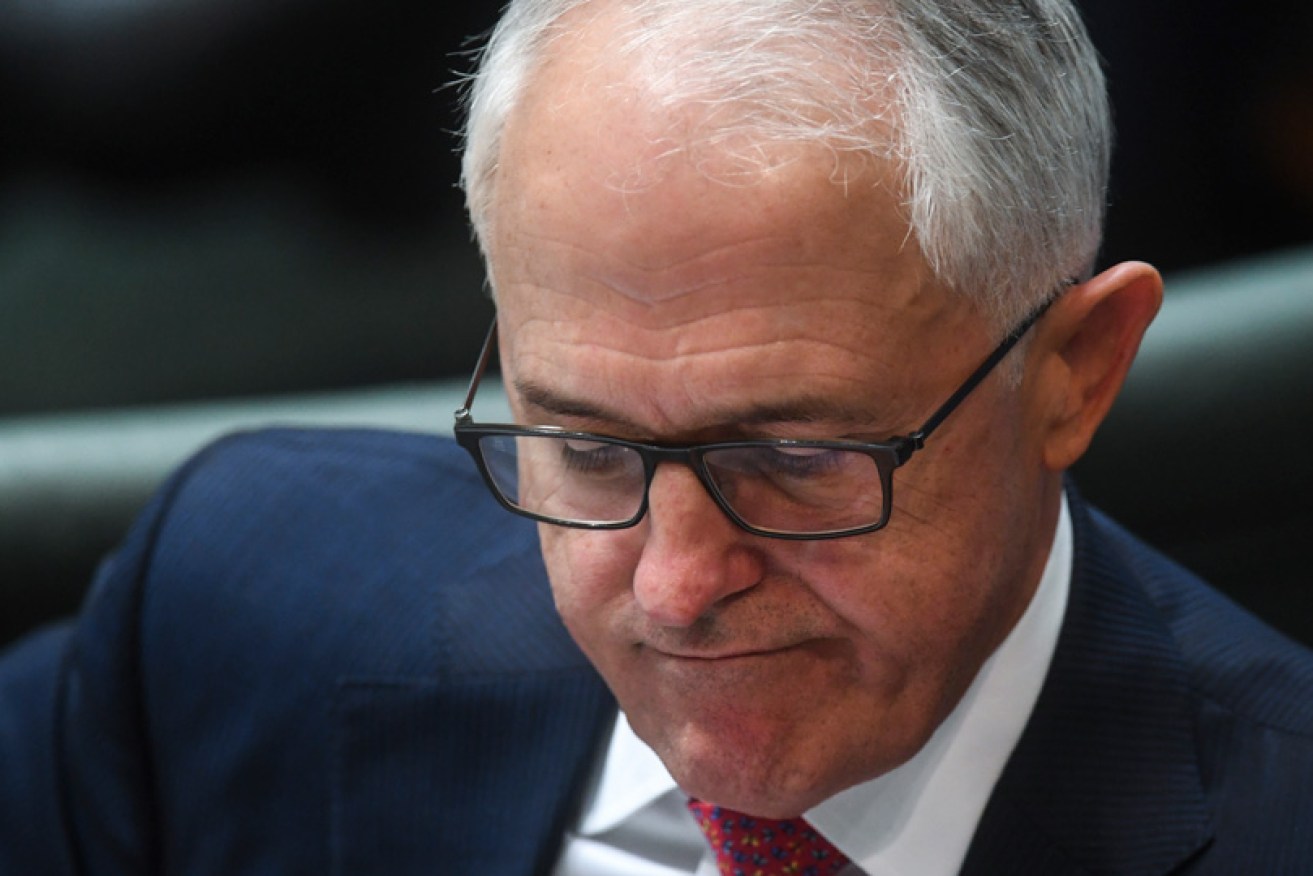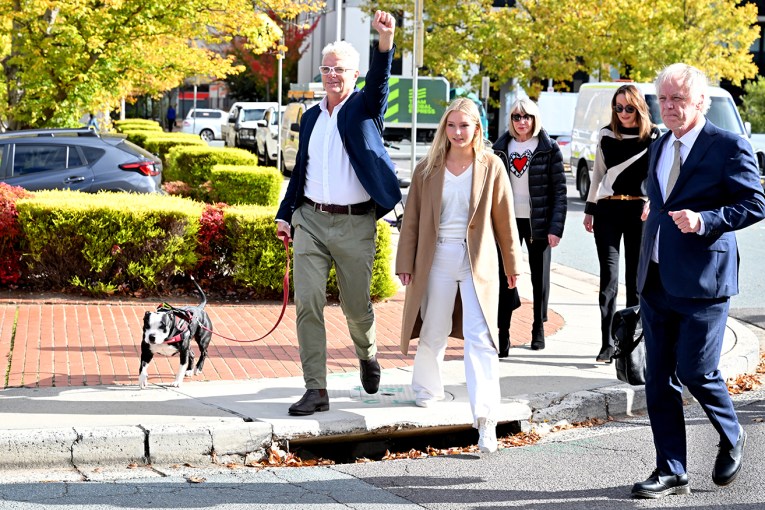Reeling Turnbull reworks NEG to sacrifice emissions as talk of mutiny grows


Battered by critics within his own party, Mr Turnbull is facing his toughest crisis yet. Photo: AAP
Malcolm Turnbull convinced his party room to support his national energy plan – and now he needs to do it all over again after a humiliating backdown in the face of a brewing mutiny.
Dissident conservative MPs were livid the Prime Minister’s signature National Energy Guarantee placed its primary emphasis on meeting Australia’s promised emissions reductions as spelled out in the Paris climate accords.
With energy bills climbing, they say the price hikes will only get worse under the NEG’s plan to further promote subsidised renewable energy and move away from coal.
By late on Friday afternoon Mr Turnbull was in full retreat, with sources saying he would spend the weekend redrafting the NEG to emphasise lower power prices at the expense of the pledged 26 per cent reduction in emissions by 2030.
Parliament returns on Monday with leadership tensions also afflicting the Coalition after reports Home Affairs Minister Peter Dutton was considering challenging for the top job.
Those rumours, and resentment of party leadership, received a gigantic boost on Friday when it emerged Mr Turnbull had shared the NEG draft with Bill Shorten and Labor but not with backbenchers in his own party.
“If Malcolm Turnbull is the smartest man in the room, it’s a very small room,” one dissident Liberal insider quipped to The New Daily.
“He has mismanaged this from go to woe – and woe is where we are now.”
While frontbenchers loyal to Mr Turnbull rejected claims Mr Dutton would challenge over the National Energy Guarantee, media commentators allied with Tony Abbott insisted the move was “on”.

Home Affairs minister Peter Dutton says he will support the PM – or quit Cabinet if he doesn’t get what he wants. Photo: AAP
Sydney shock jock Ray Hadley quizzed Mr Dutton about a challenge on his Friday radio show, then pressed him further when the Home Affairs Minister swore that, speaking as a member of Cabinet, he would always support the Prime Minister.
Pressed harder, however, he added that if he could not accept the final NEG version he would be obliged to quit.
“If my position changes, that is, it gets to a point where I can’t accept what the government is proposing or I don’t agree, then the Westminster system is very clear – you resign your position.”
Turnbull ally and Coalition frontbencher Christopher Pyne tried to pour cold water on talk of a party room revolt, saying the leadership was listening to concerns about keeping power prices down.

Wind farms and other renewables could be big losers under a redrawn NEG. Photo: Getty
“That’s why the Prime Minister and the Cabinet will propose a big stick approach to electricity prices next week, because we want to bring prices down too,” Mr Pyne told the Nine Network on Friday.
Even that concession might not be enough, however, to suppress what is now seeing party members openly express their dissatisfaction with their leader.
On Monday, when Mr Turnbull took the outline of his plan to the party room, he was adamant the Paris accord’s emission limits would be legislated into law, meaning they could not be altered without another parliamentary vote.
The new proposal, sources say, will see emissions levels nominated by ministerial regulation – a switch that means emissions could rise or fall according to which party is in power or, as Mr Turnbull’s backdown demonstrates, when they become politically unpalatable.
This concession, however, is unlikely to soothe Liberal dissidents.
As climate sceptic and pro-coal MP Craig Kelly told Sky News on Friday, such a change would likely win the approval of pro-renewables premiers such as Victorian Labor Premier Daniel Andrews, who wants even bigger carbon reductions than those in the Paris accords.
Nor is the NEG the only problem casting a shadow over Mr Turnbull’s leadership and future
Pushed from the front-burner by the NEG debacle, at least for the moment, is the controversy surrounding the $444 million unsolicited grant to the Great Barrier Reef Foundation.
And on top of that, Mr Turnbull must also helm the passage of corporate tax cuts, which appear doomed to fail in the Senate unless the government can win more crossbench support.
“We would like to see the Senate pass the legislation but we don’t take anything for granted,” Finance Minister Mathias Cormann told Sky News on Friday.

Mathias Cormann will need to cut some deals to get crossbenchers onside. Photo: AAP
“We are open to engage constructively with the crossbench on any suggestions, right up until the last minute.”
The government needs at least eight of the 10 crossbenchers to get the unpopular corporate tax cuts through, but so far only four have agreed.
The draft laws, which slash the tax rate for all businesses from 30 to 25 per cent, have been listed for debate in the upper house on Monday.
The lower house will debate a bill giving extra support to farmers doing it tough in the drought, as well as draft laws banning modern slavery.
Labor is looking to amend the modern slavery bill to split out reporting of forced marriage, which the party believes should be a separate law.
Pauline Hanson will continue her push in the Senate for a plebiscite on Australia’s migration levels, while senators will continue debating the government’s cashless welfare card trial.
Following a week in which Katter’s Australian Party senator Fraser Anning called for a ban on Muslim migration, Australia’s first female Muslim senator Mehreen Faruqi will be sworn in on Monday.
-with AAP








